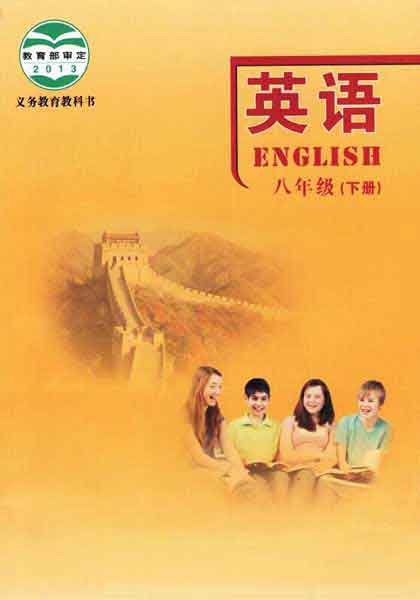Literature Spot: Escape from Quark课文句子跟读音频
Literature Spot
文学欣赏
Escape from Quark
逃离夸克
Look at the picture on the right and read the story.
看一看右边的图片并读一读这个故事。
Find five mistakes in the story.
然后找出故事中的五处错误。
It was 7:45 in the morning.
那是早上7点45分。
Commander Church was in the bed, Engineer Datum was in the kitchen and Lieutenant Riker and Dr Novak were at the controls.
丘奇指挥官躺在床上,达图姆工程师在厨房,赖克副官和诺瓦克博士在监控室。
There was a big explosion on the spaceship's computer!
宇宙飞船的电脑上发生了大爆炸!
There was a fire and the astronauts were scared.
起火了,那些宇航员很害怕。
But the planet Quark was near.
但是夸克星球就在附近。
The planet was strange but it was okay because there was oxygen.
那颗星球很奇怪,但是它还不错,因为那里有氧气。
The plants were strange - there were big blue cactuses with red flowers.
那里的植物很奇怪——有开着红花的巨大蓝色仙人掌。
There were some big black snakes on the plants.
在那些植物上还有一些大黑蛇。
The sky was yellow and there were black clouds.
天空呈黄色,乌云密布。
It was very cold on the planet.
那颗星球上非常寒冷。
Then there was a signal on Dr Novak's radio.
那时,诺瓦克博士的收音机里有了信号。
There was life on Quark!
夸克上存在生命!
Read the story.
读故事。
Draw the astronauts' route on the map.
在地图上画出那些宇航员所走的路线。
The astronauts wanted to find life on the planet.
宇航员想在那颗星球上找到生命。
They started their journey, went west and crossed a desert with giant cactuses.
他们起程往西行走,然后穿过了一片长满巨大仙人掌的沙漠。
They saw some red and yellow zebras.
他们看见了一些红黄相间的斑马。
The zebras were friendly and the astronauts decided to stay the night there.
那些斑马很友好,于是宇航员们决定在那里过夜。
The next morning, they saw an oasis with fruit trees.
第二天早上,他们看见了一片长满果树的绿洲。
Then they arrived at a big river.
然后他们来到了一条大河边。
Dr Novak saw two boats and the astronauts sailed south.
诺瓦克博士看见了两条小船,然后宇航员们就向南航行了。
They saw some dolphins but they were not friendly.
他们看见了一些海豚,但是它们并不友好。
Three killer dolphins attacked the boat but Lieutenant Riker killed them.
三只杀人海豚袭击了小船,但是赖克副官把它们给杀死了。
The weather was very bad and there was a big tornado but the astronauts were okay.
天气非常糟糕,还起了很大的龙卷风,不过宇航员们还好。
Then they arrived at a beautiful bridge.
然后他们来到了一座美丽的桥上。
They travelled for two days.
他们长途跋涉了两天。
They were very tired and scared.
又累又怕。
But then they saw a spectacular, modern palace.
但是之后他们就看见了一座宏伟壮观的现代化宫殿。
It was the palace of the Grand Emperor of Quark.
那是夸克大帝的宫殿。
This emperor was famous-he was a space pirate and he wasn't very friendly to visitors!
这位皇帝很出名——他是太空海盗,而且他对访客们很不友好!
Escape from Quark
逃离夸克
Read the rest of the story.
读剩下的故事。
Order the parts of the story (a-f).
给故事的各个部分进行排序(a-f)。
Example: 1e
例子:1e
"You ask ME for help?!"
“你们请我帮忙?!”
the emperor said.
皇帝说。
"Take them to the killer lizards!
“带他们去见杀人蜥蜴!
They are very hungry. "
它们很饿了。”
"Emperor, please help us, "said Dr Novak.
“皇帝,请帮帮我们吧,”诺瓦克说。
"Okay. You've got one chance.
“好吧。你们有一次机会。
Answer three questions about Quark.
回答三个有关夸克的问题。
One wrong answer and you are lunch for the lizards!
答错一个,你们就都是那些蜥蜴的午餐啦!
Question one.
第一个问题。
What is this?"
这是什么?”
He pointed at his helmet.
他指着自己的头盔说道。
The emperor pointed to the walls.
皇帝指向那些墙壁说道。
"Correct.
“答对了。
Final question.
最后一个问题。
What are those?"
那些是什么?”
"They are TV screens, " said Datum.
“它们是电视屏幕,”达图姆说。
"The emperor can watch his planet on them. "
“皇帝可以在它们上面看到自己的星球。”
"Okay, " said the emperor.
“好吧,”皇帝说。
"That is right.
“回答正确。
You are lucky!
你们真是幸运啊!
Help these strange astronauts.
快帮帮这些陌生的宇航员吧。
Goodbye. "
再见。”
The astronauts did not know the answer.
那些宇航员不知道答案。
Then Engineer Datum spoke.
然后达图姆工程师说话了。
"It is the famous gold helmet of Quark.
“它是夸克有名的金盔。
It was the first emperor's when he discovered Quark. "
它是第一位皇帝的,当时是他发现了夸克。”
"Correct.
“答对了。
Second question.
第二个问题。
What is this?"
这是什么?”
The emperor pointed to his pet lizard.
皇帝指着他的宠物蜥蜴说道。
That afternoon, the aliens helped them repair the spaceship.
那天下午,外星人帮他们修好了宇宙飞船。
Then the astronauts left the planet Quark.
然后那些宇航员就离开了夸克星球。
"How do you know about the planet Quark?"
“你怎么知道有关夸克星球的事情?”
Dr Novak asked Datum.
诺瓦克向达图姆问道。
"I did a project about Quark at my robot school!"
“我在机器人学校里做了一个有关夸克的课题研究!”
said Datum.
达图姆说。
Ten aliens arrived and took the astronauts to the great hall of the palace.
十个外星人过来了,然后把那些宇航员带到了宫殿的大厅里。
The emperor was there.
皇帝就在那里。
"Why are you here?"
“你们为什么在这儿?”
he asked.
他问道。
"There was an explosion on our spaceship," said Commander Church.
“我们的宇宙飞船上面发生了爆炸,”丘奇指挥官说道。
"Can you help us?"
“你能帮我们吗?”
"That is a young Quark lizard, "replied Datum.
“那是一条年轻的夸克蜥蜴,”达图姆回答说。
"They eat meat and can fly at 97 kilometres per hour.
“它们吃肉,并且能以每小时97公里的速度飞行。
They are very dangerous. "
它们非常危险。”
北师大版八年级下册英语Literature Spot: Escape from Quark单词跟读音频
单词跟读quarrel
spirit
pretty
somewhere
boss
praise
article
lazy
upset
stranger
suppose
offer
unhealthy
housework
strict
unhappy
amount
password
trust
everyday
produce
succeed
mess
gap
positive
satisfied
attract
whenever
manage
lonely


 切换教材
切换教材